-
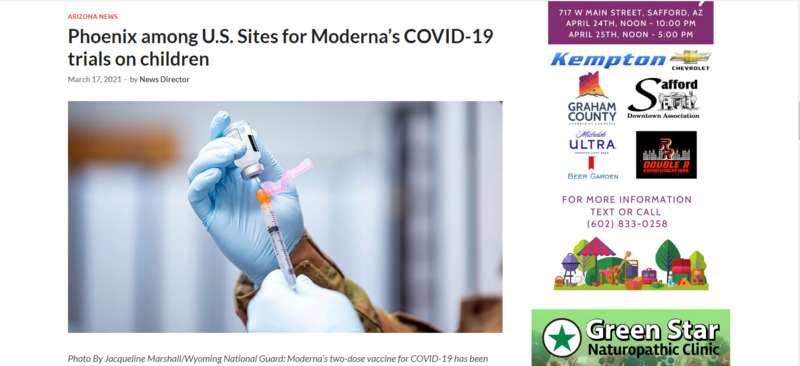
2021-03-17
By Jacob Holter/Cronkite News
WASHINGTON D.C. – Children from 6 months up to 12 years old could soon start getting the COVID-19 vaccine in Phoenix as part of a trial of the drug’s effectiveness on young people.
Drug-maker Moderna announced this week that Phoenix will be one of the cities where it will test smaller doses of its COVID-19 vaccine, which has currently only been approved for adult use, on preteens. The company has already started trials of the vaccine on teenagers.
While children have proven to be less susceptible to the disease, health experts say it’s important to have the option of a vaccine for younger kids as schools reopen and to improve the odds of “herd immunity” for the overall population.
“The reason we want to make sure that all of these kids get vaccinated is so we can truly achieve herd immunity. We don’t want to have little pockets of people who might be infectious and not be protected,” said Dr. Georges C. Benjamin, director of the American Public Health Association.
The preteen trials were announced Tuesday by Moderna, one of three pharmaceutical companies with vaccines approved for emergency use in adults in the U.S., along with Pfizer-BioNTech and Johnson & Johnson. Moderna and Pfizer vaccines require two doses, while the newer Johnson & Johnson vaccine has a one-dose protocol.
The announcement came the same day that the Arizona Department of Health Services announced that just over 1 million Arizonans have been fully vaccinated against the coronavirus. Overall, the state has administered about 2.6 million doses to a little more than 1.6 million people.
Moderna CEO Stéphane Bancel said in a statement that more than 53 million doses of his company’s version of the vaccine have been administered in the U.S., but “this pediatric study will help us assess the potential safety and immunogenicity of our COVID-19 vaccine candidate in this important younger age population.” The statement said the new trials would take place in the U.S. and Canada.
Dr. Steven Plimpton, the lead investigator for the Phoenix trial, said Tuesday that his office has “already gotten hundreds of calls” from parents interested in getting their children into the trial. He said parents interested in the trial in Phoenix can go to the KidCOVE site for more information or can call 602-368-1928 or 866-913-5454.
One University of Arizona expert said it will likely take a little while to get the trials in motion.
“I would say sometime in the next several weeks, as they get recruitment on board and they have a critical mass to start with and they have all of the aspects of the trial set up in terms of location, staffing, and everything that they need in place,” said Dr. Shad Marvasti, director of public health and prevention at the University of Arizona College of Medicine.
Moderna said that children in the first phase of the trial will receive doses of 25, 50, or 100 micrograms of the vaccine – an adult dose is 100 – depending on their age. Results from that phase will be used to determine dosages in a second phase when come subjects will get a placebo.
ad1
Ultimately, Moderna expects to include 6,750 children in the latest trials.
“The adult dose for the Moderna is 100 micrograms, but they are starting with 25 micrograms and then basically watching folks and kids to see how they react,” Marvasti said. “If that looks good and there are no major issues, then they will have a group of kids in the study with 50 micrograms and then if that looks okay they will have another group that has 100 micrograms.”
He added that Moderna’s trust that the vaccine is safe enough to begin trials on kids could have the added benefit of helping to quell vaccine hesitancy among others.
“Hopefully, depending on the results, it will help give people more confidence to get the vaccine, especially if it proves to be as safe and effective in children as it has been in adults,” Marvasti said.
The announcement of the preteen trials also comes as the state has ordered schools to begin to resume in-person schooling, after a year in which most students have attended class virtually.
Benjamin said that with schools reopening, in Arizona and across the U.S., a vaccine for youth would make a definite difference in controlling the virus, as it would prevent kids from spreading it to each other and then bringing it home with them. Vaccination would also expedite kids’ ability to return to normal.
“Getting kids vaccinated, I think, will certainly improve their quality of life and their ability to effectively interact with their friends,” he said.
-
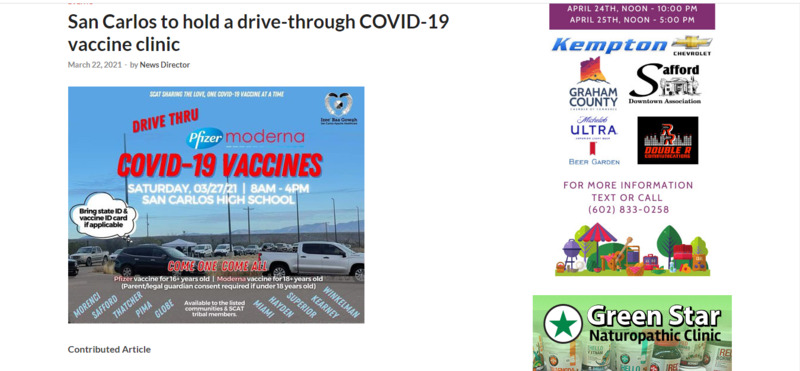
2021-03-21
March 22, 2021 - by News Director
Contributed Article
SAN CARLOS – The San Carlos Apache Healthcare Corporation is proud to present a COVID-19 vaccine drive-through clinic for SCAT members and their family and friends of the surrounding communities of Globe, Miami, Superior, Hayden, Winkleman, Kearny, Pima, Thatcher, Safford, and Morenci.
Our SCAHC Vaccination team will be administering the Pfizer and Moderna vaccine at the San Carlos High School, on Saturday, March 27, from 8 a.m. – 4 p.m. No appointment is necessary.
For the Pfizer vaccine, those receiving it must be 16 years of age or older (must have a parent/legal guardian consent if under 18)
For the Moderna vaccine, those receiving it must be 18 years of age or older.
Please remember to bring your state ID. There is no charge for the vaccine.
-
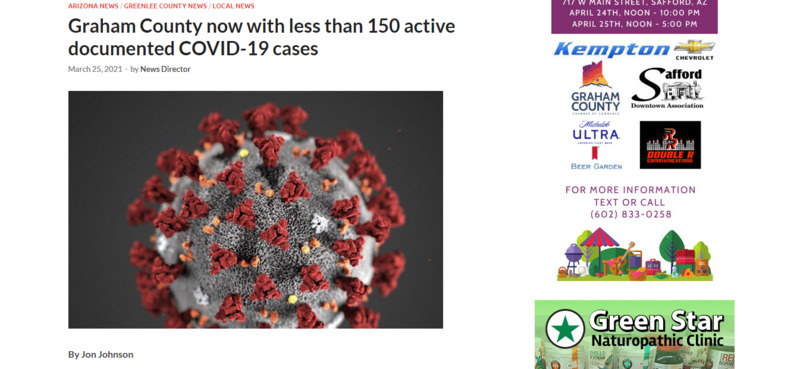
2021-03-25
By Jon Johnson
jonjohnsonnews@gmail.com
SAFFORD – Graham County has had very few new confirmed cases of COVID-19 in the past month, lowering its numbers to just 147 active cases as of Thursday.
According to the Graham County Department of Health and Human Services, Graham County has had a total of 5,355 confirmed cases for the course of the pandemic, with 5,132 listed as being recovered, 147 active, and 76 deaths in more than a year.
No new cases were recorded Thursday, and, according to the Arizona Department of Health Services COVID-19 school dashboard, Graham County had just a 1 percent positivity rate as of the week of March 14. That is good for a tie with Apache County for the second-lowest percent positivity rate out of Arizona’s 15 counties. Only Greenlee County, which registered a zero percent positivity rate from Feb. 27 – March 14, had lower.
With the lower cases statewide and vaccine rollout, Governor Doug Ducey issued an Executive Order on Thursday, rolling back several COVID-19 mitigation measures involving businesses and gatherings. This comes as other states roll back their COVID-19 mitigation measures as well.
The rollout of the various COVID-19 vaccines has picked up steam in the last month, with the state opening up the vaccine to anyone 16 years old or older for the Pfizer vaccine. Anyone 18 years old or older can be administered the Moderna and Johnson & Johnson vaccines. The San Carlos Apache Healthcare Corporation is holding a free, drive-through vaccine clinic on Saturday, March 27 at the San Carlos High School. No appointment is necessary. The clinic will be administering both the Pfizer and Moderna vaccines.
Graham County and Greenlee County are also providing vaccination sites for those 18 and older, and provide the Moderna and Johnson & Johnson vaccines.
Greenlee County
According to the Greenlee County Health Department, the county currently has just nine active cases of COVID-19.
For the course of the pandemic, Greenlee County has had 568 confirmed positive cases (by far the lowest out of any of Arizona’s 15 counties), with 549 recovered cases, nine active, and 10 deaths.
-
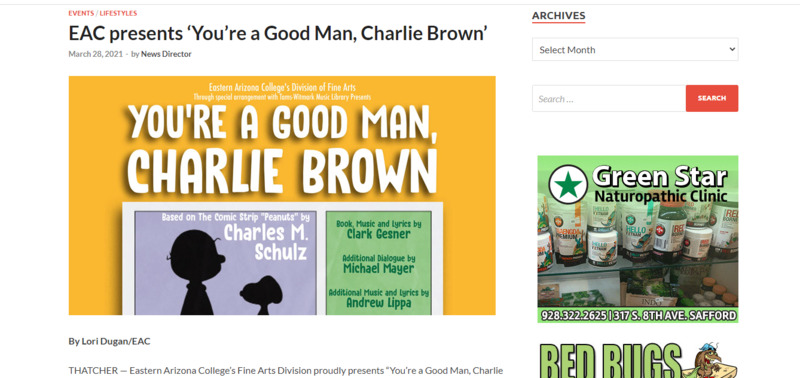
2021-03-28
By Lori Dugan/EAC
THATCHER — Eastern Arizona College’s Fine Arts Division proudly presents “You’re a Good Man, Charlie Brown” from April 7 – 10 at 7:30 p.m. in the Fine Arts Auditorium, with the understudy performance taking place on April 8.
General admission tickets are $5 for adults and are on sale now at the EAC Ticket Office. Call (928) 428-8228 for more information. EAC employees and students can attend for free.
Due to COVID-19, social distancing is in place to accommodate safe spacing. Masks are required.
You’re a Good Man, Charlie Brown synopsis
The musical, based on the wildly popular Peanuts comic strip by Charles Schulz, is probably best described as an average day in the life of Charlie Brown. It is made up of little moments, from Valentine’s Day to baseball season, from wild optimism to utter despair. The familiar cast of characters is there, from Lucy and Linus to Schroeder, Sally, and, of course, Snoopy.
The production explores what it means to be a good person, prompted by affirmations from Charlie Brown’s friends. These compliments set Charlie Brown on a journey of self-discovery as the audience follows him and his friends through a day of adventure and trials.
Musical numbers include “My Blanket and Me,” “The Kite,” “The Baseball Game,” “Little Known Facts,” “Suppertime,” and “Happiness.”
The play spans the months between Valentine’s Day and Beethoven Day, following the characters in their optimism and utter despair.
“’You’re a Good Man, Charlie Brown’ is a crowd-pleasing classic for all ages,” said Chase Moore, EAC Musical Theatre director. “Anybody who’s a Peanuts fan will relive lots of fun memories from the comic strip.”
Behind the production
The production is directed by Dr. Dale J. Young, and features set designs by Greg Owen, both EAC associate professors of theater arts. Music is under the direction of Chase Moore. The production is choreographed by Rena De La Cruz, with costumes designed by Timilee McNair.
Clark Gesner created the book, music, and lyrics for “You’re a Good Man, Charlie Brown”, with additional dialogue by Michael Mayer and additional music and lyrics by Andrew Lippa.
Winner of two Tony Awards, five Drama Desk Awards, and an Outer Critic Circle Award, this production’s musing on life’s ironies and delights continues to resonate with audiences’ hearts.
Theatre Arts at EAC
You can shine in the spotlight at EAC! In the Department of Theatre Arts, students take part in dynamic shows and emerge as artists for the next step in their careers.
“Our graduates are successful all across the country,” said Dr. Dale J. Young. “Some of the roles they hold are teachers, managers, actors, playwrights, directors, administrators, MFA graduate students, and the list goes on.”
Students interested in this area of study at Eastern Arizona College enter the Associate of Arts Program in Theatre Arts www.eac.edu/Academics/Programs_of_Study/Theatre/. This program offers dynamic learning opportunities in acting, stagecraft, scene design, stage make-up, costume design, play analysis, and more. This curriculum meets the targeted requirements for the first two years of a bachelor’s degree program at a college or university.
-
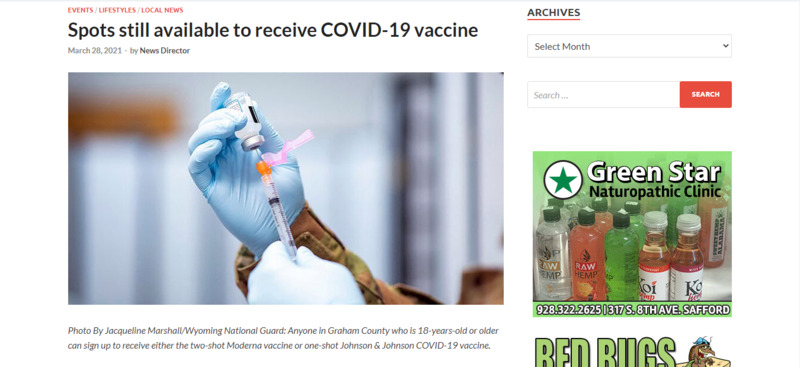
2021-03-28
Staff Reports
SAFFORD – While some in other states attempt to bribe or lie their way to the front of the vaccine lines, that isn’t necessary for those in Arizona.
The state has opened its registration to receive a COVID-19 vaccine to anyone 16-years-old and up for the Pfizer vaccine, and anyone 18-years-old and up for the Moderna and Johnson & Johnson vaccines.
In Graham County, the Graham County Department of Health and Human Services has advised that there “are many appointments still available” to receive the Moderna vaccine.
Anyone 18-years-old and up may schedule an appointment at www.graham.az.gov.
The Graham County Health Department Vaccination Center is located in Downtown Safford at 627 W. Main St.
In addition to the Moderna vaccine, a vaccination clinic for the one-dose Johnson & Johnson vaccine is also available to any Graham County resident who is 18-years-old or older. A vaccination clinic for the Johnson & Johnson vaccine will be held Friday, April 16. Register for an appointment at www.graham.az.gov.
For any additional questions contact the Graham County Department of Health and Human Services at 928-428-0110.
-
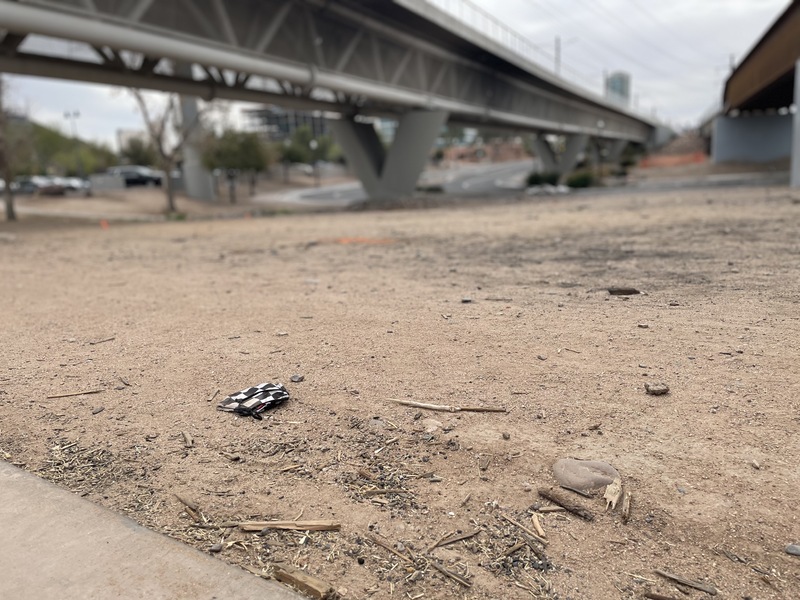
2021-03-26
Black and white checker fabric face mask near Tempe Beach park.
-
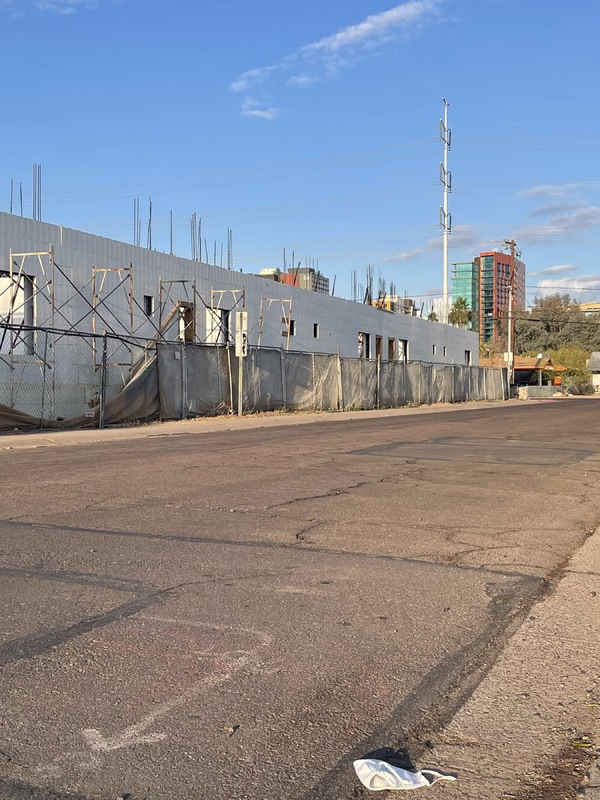
2021-03-26
Disposable white face mask found near 9th and Roosevelt in Tempe, AZ.
-
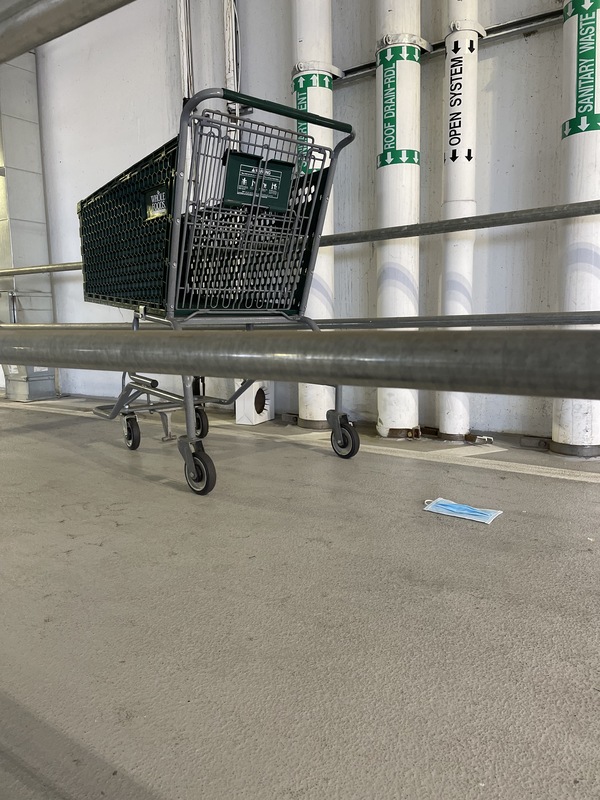
2021-03-27
Disposable mask on the ground near the cart return at Whole Foods in downtown Tempe, AZ.
-
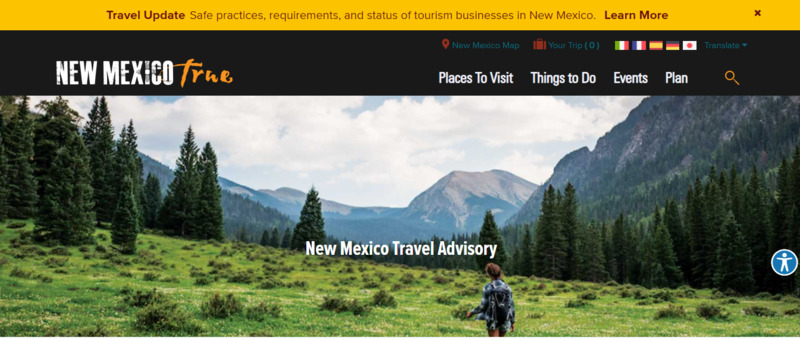
2021-02-11
Tips for Healthy & Safe Travel In New Mexico
During this time, the New Mexico business community is implementing additional COVID-Safe Practices at their establishments to help ensure the health and safety of their customers. Below are some of the additional safety measures you can expect and plan ahead for when visiting New Mexico’s businesses, restaurants, and attractions.
For more information on the status of COVID-19 in New Mexico, please visit the New Mexico Department of Health.
red alert
NOTICE FOR ALL TRAVELERS: Effective February 11, New Mexico will no longer require self-quarantine for visitors arriving into the state from "high-risk" states. Visitors from anywhere outside of the state will instead by strongly advised to self-quarantine for a period of 14 days and to seek out a COVID-19 test upon their arrival in or return to New Mexico.
NOTICE FOR ALL TRAVELERS: Face coverings are required for all visitors and residents in New Mexico. The only exceptions are when drinking, eating, or under medical instruction. Any individual found in violation may face a $100 fine.
Guidelines for Travel in New Mexico
If you are traveling to New Mexico, please follow all safety guidelines and restrictions. Local governments may impose more restrictive guidelines so be sure to check local instructions before traveling. Please be mindful of the following general guidelines for travel to and within the state of New Mexico:
Effective December 2, guidelines and restrictions in New Mexico have moved to a county-by-county basis. Please consult the county map from the New Mexico Department of Health to learn more about specific county restrictions
Effective February 11, New Mexico will no longer require self-quarantine for visitors arriving into the state from "high-risk" states. However, visitors from anywhere outside of the state are strongly advised to self-quarantine for 14 days and seek out a COVID-19 test upon their arrival in New Mexico
Everyone is required to wear a face covering in public in the state of New Mexico. The only exceptions to wearing a face covering are eating, drinking, or medical requirements.
Drive-in events may operate in accordance with COVID-Safe Practices.
Effective February 24, 2021, Casinos, Entertainment Venues, and Recreational Facilities may operate in accordance with COVID-Safe Practices within the county-by-county framework.
COVID-Safe New Practices at Hotels, Resorts & Lodging
Please note that guidelines and restrictions in New Mexico have moved to a county-by-county basis. Please consult the county map from the New Mexico Department of Health to learn more about lodging operations for specific counties. Please note these changes to hotel and lodging operations:
Lodging establishments will adhere to the enhanced cleaning procedures outlined by the American Hotel & Lodging Association’s Stay Safe Enhanced Industry-Wide Hotel Cleaning Standards.
Comfort items and appliances such as coffee machines, irons, hair dryers, extra blankets, etc. may be provided upon request.
Housekeeping shall only provide cleaning service during a guest’s stay upon request by the guest.
Multiple guests per room are to be limited to “same households” only (individuals who live within the same place of residence).
If food service is provided onsite, room service is encouraged as a first option for guests who would like food service with food carts being left at guest’s door to minimize contact.
Self-serve food bars and refreshments such as water, coffee, ice, etc. will be closed or removed. Hotel staff can provide these services upon request.
Valet service will be suspended.
Safe Dining
Please note that guidelines and restrictions in New Mexico have moved to a county-by-county basis. Please consult the county map from the New Mexico Department of Health to learn more about restaurant operating procedures for specific counties. Here are some of the COVID-Safe Practices and enhanced health and safety practices recommended by the Food and Drug Administration and the CDC that you can expect to be in place to keep customers safe while dining at New Mexico’s restaurants:
In an effort to support contact tracing, restaurants will be required to retain a daily log of all customers and employees who enter their establishment.
All customers are required to be screened for COVID-19 symptoms through a questionnaire upon entry of the premises.
Reservations, dining parties and private events may not exceed the mass gathering definition.
Reusable items such as menus and condiment containers left on tables will be cleaned and sanitized after each use. Items that cannot be cleaned and sanitized after each use will be replaced with single-use items.
Animals and pets, excluding service animals, will not be permitted inside the establishment, onto patios, into stores, or other such areas.
Responsible Outdoor Recreation
Effective February 24, 2021, New Mexico State Parks will be open for day use hours to all visitors. Effective February 27, camping will reopen to all visitors by reservation only. While many parks are reopening, services, activities, and hours of operations may be limited so please consult the current Conditions and Alerts page for each park.
Please be aware of the following safety and health guidelines currently in place:
Group sizes vary by county, so check the status of the county before traveling to a New Mexico State Park
Wearing a mask or cloth face covering is mandatory in public settings
Maintain a 6-foot distance between people
Visitors are strongly encouraged to carry their own sanitizing supplies and PPE
Comfort Stations and restrooms are closed to reduce close contact
Vault toilets at some State Parks will be available
Check with the National Park Service website for more information on openings, amenity availability, and best practices.
Safe Retail Shopping
Please note that guidelines and restrictions in New Mexico have moved to a county-by-county basis. Please consult the county map from the New Mexico Department of Health to learn more about retail operations for specific counties. Here are some of the safety guidelines required from New Mexico’s retailers to keep customers safe:
High-touch items such as doors, fitting rooms, and credit card terminals will be cleaned and disinfected once every two hours (or more frequently).
Safety protocols that allow for contactless curbside pickup and home delivery whenever possible will be established.
Signs, stanchions, and/or floor decals will be utilized wherever possible to support 6-foot social distancing, including one-way aisle traffic, and separate entry/exit.
COVID-Safe Practices for Museums and Cultural Sites
Museums with static displays may operate at limited occupancy in accordance with COVID-Safe Practices. Beginning February 4, state museums and historic sites may reopen under a modified framework. To learn more about the modified operations for state museums and historic sites, visit the Department of Cultural Affairs website.
Please contact individual museums and cultural institutions before planning your visit for additional information regarding openings, hours of operations, and available services. Here are some of the safety guidelines required to keep patrons safe:
Interactive exhibits and attractions will be discontinued.
Use of rental equipment, such as headsets, portable speakers, and strollers will be discontinued unless required for ADA accessibility.
Use of coat check areas, lockers, backpack and purse storage, and related storage for public use will be discontinued.
Safe Travel Recommendations
Outside of the modified 14-day self-quarantine requirement on certain travel to New Mexico (see above), there are currently no domestic travel restrictions to the state of New Mexico. However, visitors to New Mexico should continue to follow the protective measures outlined by the CDC:
Wash your hands often with soap and water for at least 20 seconds
If soap and water are not readily available, use a hand sanitizer that contains at least 60% alcohol
Avoid touching your eyes, nose, and mouth with unwashed hands
Put a distance of at least six feet between you and other people
Stay home if you are sick, except to get medical care
Stay up to date on the latest travel advisories from the CDC, WHO, and the U.S. Department of State
-
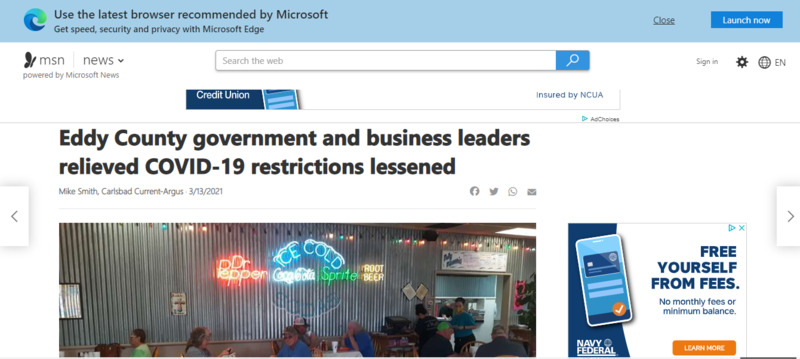
2021-03-13
This article discusses recent easing of the New Mexico state government's business restrictions in Eddy County. Businesses have been struggling to remain open and viable for the past year, and these lessened restrictions may help some restauranteurs avoid shuttering their businesses and permanently laying off their employees. The restrictions there, like many states, have specifically targeted the food and beverage industries while mega-stores are seldom impacted. During the previous year, the mid-sized community of Carlsbad lost 2 of its 3 grocery stores to temporary shutdown mandates over the holiday season. This community and its county have been especially hard-hit by economic impacts of President Biden's new Executive Orders on oil and gas production on federal lands, and the pandemic's additional business restrictions have made this a very difficult place to operate and patronize businesses.
-
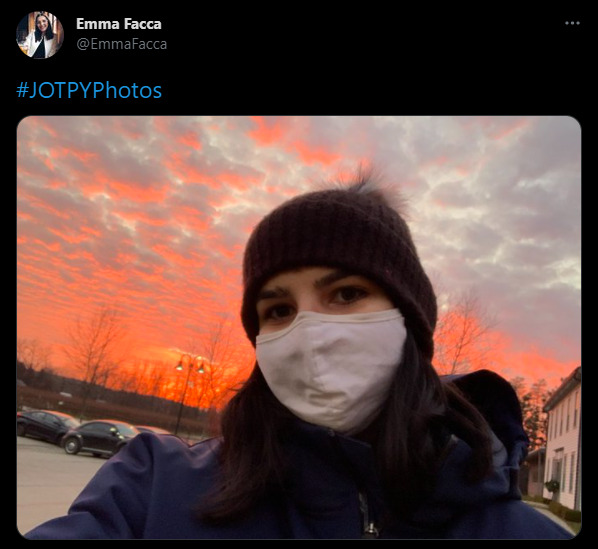
2021-03-16
#JOTPYPhotos
-
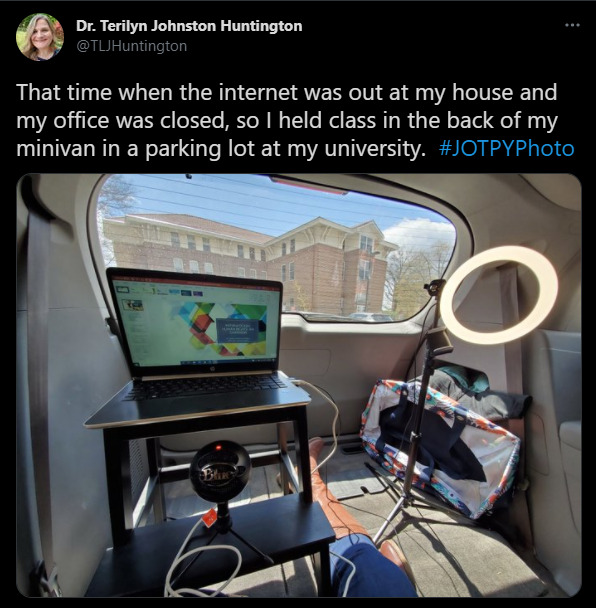
2021-03-17
That time when the internet was out at my house and my office was closed, so I held class in the back of my minivan in a parking lot at my university. #JOTPYPhoto
-
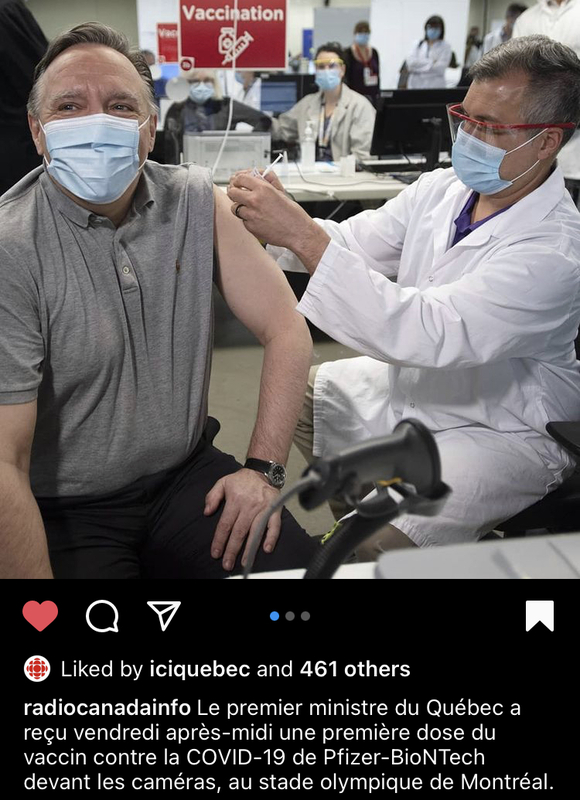
2021-03-26
He has received his first dose of the Pfizer Covid-19 vaccine at the Olympic stadium in Montreal.
-
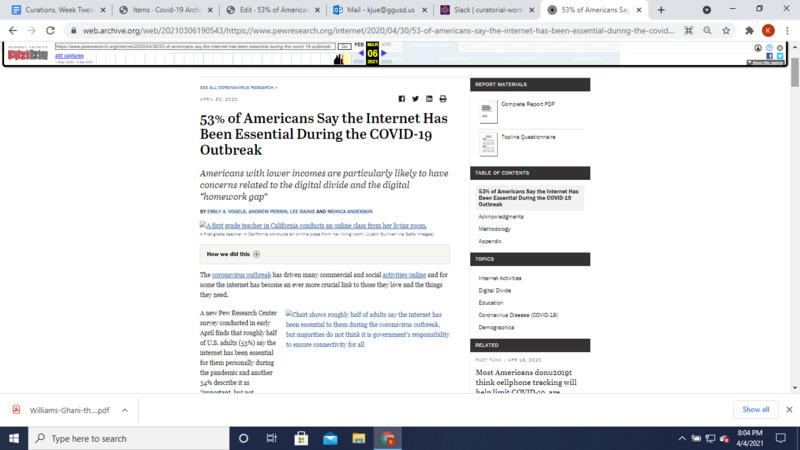
2020-04-30
This Pew Research article discusses how different socioeconomic status and political preference influences how Americans believe schools should provide technology for their students. More importantly, the article goes into detail about how parents with lower incomes are more likely to struggle to provide some sort of adequate situation for their children, especially when the majority of Americans view technology and the internet as an essential tool during the pandemic. Besides student access to technology, economic class is also having an impact on how some individuals can afford their own internet connections and phone plans, thereby limiting their access.
-
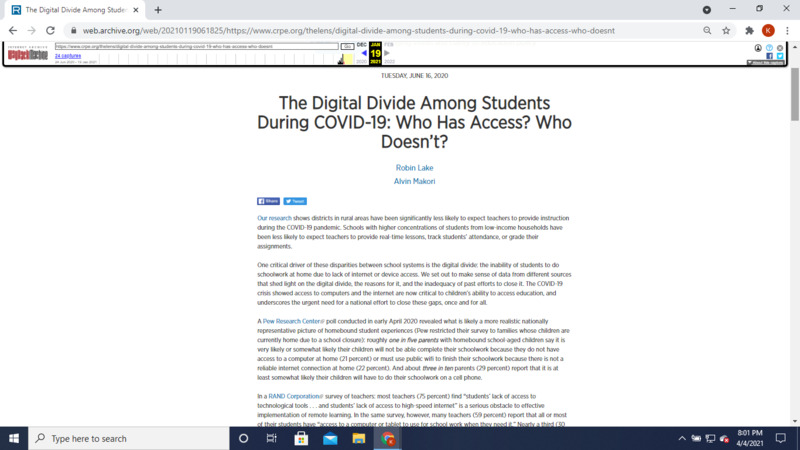
2020-06-16
The article goes into detail, drawing from multiple survey sources on the internet to discuss how geographical location and economic class has affected the way that some students have been able to adapt to online instruction. Sources like the Pew Research Center show information from parents about their children's access to technology and how it has affected their capacity to complete their schoolwork, and compares that information to different school districts' capabilities to provide reliable sources of internet/other technology during school shutdowns. The article concludes by questioning how public education is a right in the US, but due to access with technology, and even basic technological issues for those who already had access to sufficient technology, has questioned how America's students are struggling to gain what they should be ensured.
-
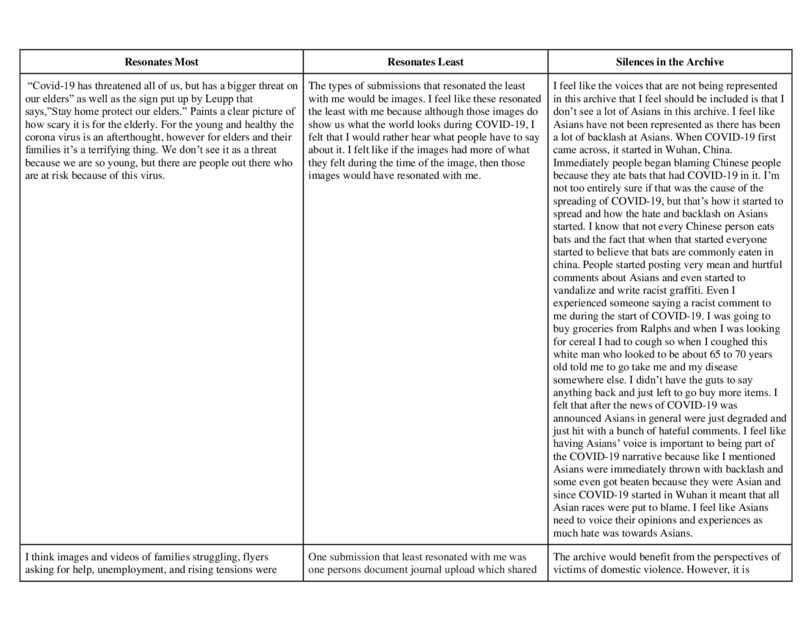
2020-06-01
In May 2020, my high school students reflected on the JOTPY archive, noting the submissions that most resonated with them and the least. Some also addressed what they saw as silences in the archive. I put their responses in a document for myself to help guide me as I helped build the JOTPY teaching site. However, a year after beginning to work on the project, I find their responses very insightful, particularly their recognition that the racial prejudice facing the Black and AAPI communities needs to be better highlighted.
-
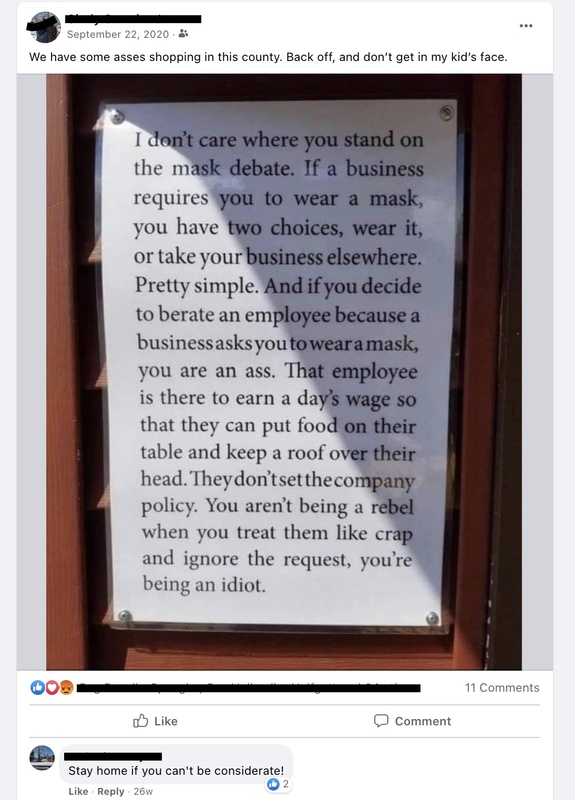
2020-09-22
This image of a sign at a store, posted on Facebook, hit home with the woman who posted, whose daughter works for a retail store and had recently dealt with an extremely aggressive customer. While there is not information regarding where this sign was posted, many small businesses who want to protect their employees are posting similar messages to express their frustration with those refusing to follow mask ordinances and store policies. Stores and restaurants are often private property, meaning that even if states don't require precautions such as masks, businesses are still allowed to have their own requirements before allowing customers to enter.
-
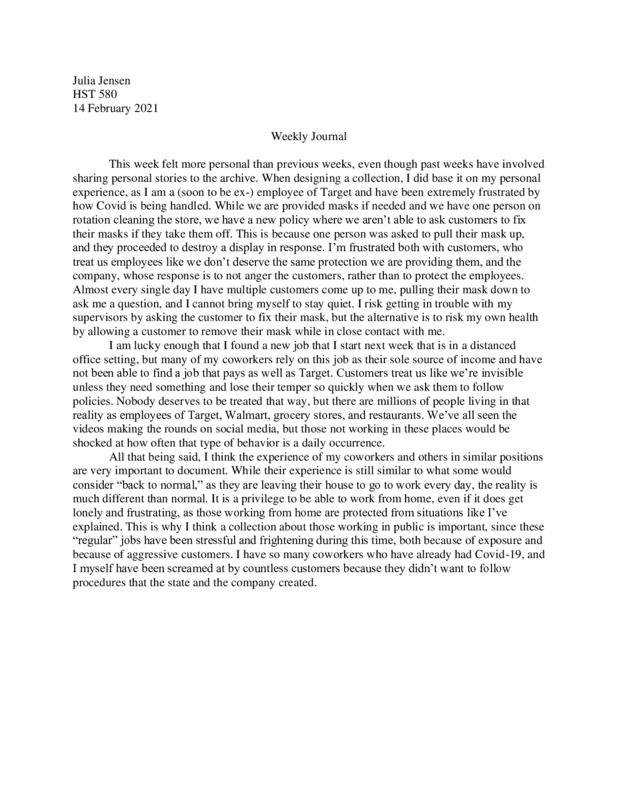
2021-02-14
This journal entry excerpt, written in February, expresses my frustrations with the experiences my friends and I have had working in the service industry during the pandemic, and why it is important to document that experience. During a time in which there has been a great deal of coverage about working from home, those of us without the option to had to adapt to the new procedures in an attempt to keep ourselves safe, and were often met with more aggression and defensiveness from customers than before. While some of this entry is me airing my frustrations, it gives insight into how I was feeling at the end of my time working for the service industry.
-
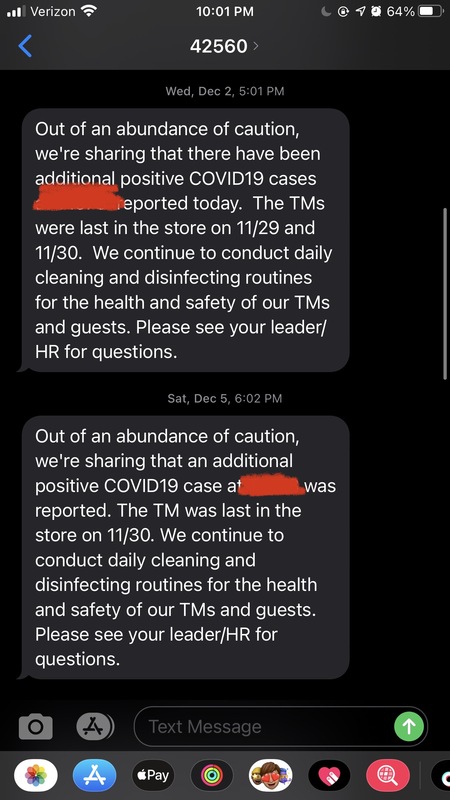
2020-12-05
For six months during the pandemic, I worked at Target. During that time, this is how we were notified of positive Covid cases within our store. Due to privacy reasons, this was often all the details we would receive, leaving us wondering if we should be getting tested or taking extra precautions. This was particularly stressful during the holidays, as there would be at least one text regarding a positive case per week. On the week in the screenshot, there were three positive cases in one week. It often left many of us more stressed than we already were with the influx of holiday shoppers, but we had to continue with our work as is nothing was wrong in order to keep the store functioning to the best of its ability. By the end of the year, we were all surprised when we went more than a couple days without a text.
-
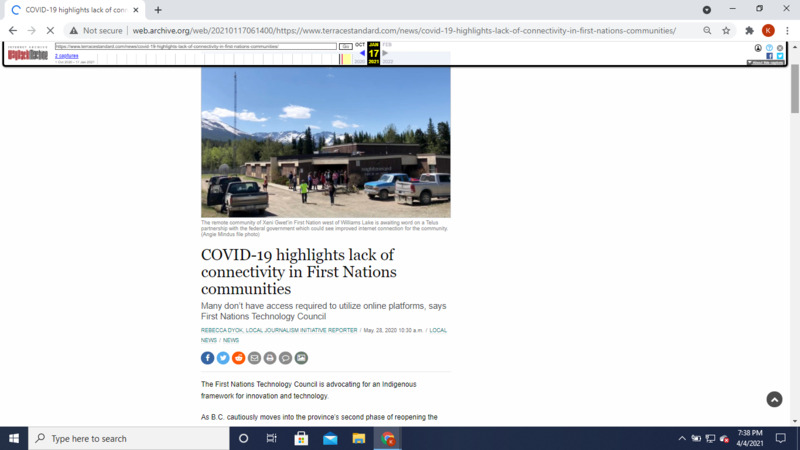
2020-05-28
This article speak about the ‘digital divide’ in Canada; a reality in Canada where rural and First Nations communities don’t have access to the sufficient technology or infrastructure to use online platforms, or just the internet in general. This particular article tackles how the pandemic has exacerbated this divide, and has shown the need to give these communities access to high-speed internet. These communities often are left to ask private enterprises to provide these services, and these corporations which are profit oriented as all telecommunications giants often ignores these calls, as they would not see a financial return. Essentially, profits are being placed over people, which in turn breaks apart the social solidarity of these communities and complicates communication between First Nations communities and the Canadian state, as well as community organization at large. However, this article states that the government will be actively attempting to incentivize these private corporations to build telecommunications infrastructure as a means to abide by the UN’s declaration of Rights of Indigenous Peoples. While progress is being made, this article nevertheless identifies the material and logistical disparities between First Nations communities throughout the nation; which have been highlighted by the pandemic.
-
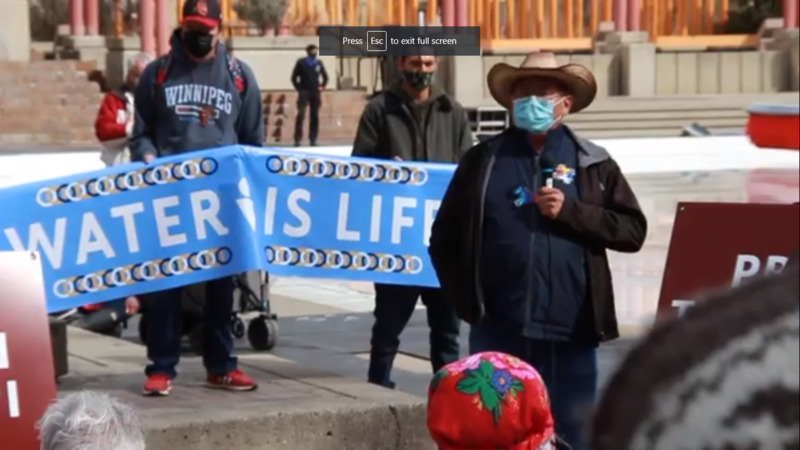
2021-03-27
This is a YouTube video of a speech given in Calgary Alberta on March 27th, 2021 during a protest against the UCP’s (United Conservative Party) attempt to create coal mines on Niitsitapi land, threatening Indigenous sovereignty and ecological stability. The description is as follows, “A protest rally was held March 27th, 2021, to show support and solidarity with the water protectors who defend Treaty Territories. Titled, No Coal Mines on Niitsitapi Land. It is all our responsibility, Settlers and Indigenous to defend what the nature gives to us. Water creates and sustains life.” This speech in particular resonated with me as it spoke about the reality of living on this land, that we are a treaty person – both First Nations and settlers. We must work together to uphold the treaty (in this particular situation it would be treaty 7), to protect the water and land which came before us and sustained us throughout history. The pandemic has shown that there is a fundamental need for social and environmental change to allow future generations to have access to the water, a basic human right.
We live on this land together, we will fight for this land together and we will build a new future together.
-
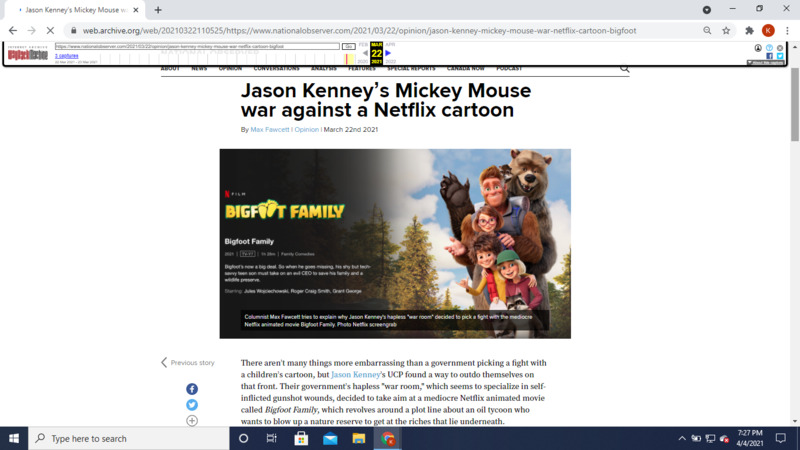
2021-03-22
This article tackles a plethora of issues facing Albertans today, one of the most prominent being a lackluster b-tier animated series on Netflix which seriously threatens our economic and social stability. Jokes aside, I’ve chosen to add this document to the archive as it truly does represent the embarrassing state of affairs that Alberta finds itself in today; as a result of this conservative government’s primacy of privatization and a tax-payer fed propaganda machine which has mythologized the idea of conservative fiscal responsibility. Furthermore, this document sheds light on the attempt to revitalize an oil extraction method from the 1950s which involves detonating a nuclear device underground as a means to boil bitumen. Needless to say, these campaigns to ‘protect’ Albertan economic interests through propaganda have done the absolute opposite, furthermore this draws attention to the very real threat the UCP poses to the environmental stability of Alberta. More so, this news article touches upon the monopolization of both the oil and gas industry and telecommunications networks underneath the UCP regime, resulting in job losses and the flight of several companies from the province – companies which have undoubtedly received tax breaks and corporate donations of tax payer dollars from Kenny’s government.
Another point, I feel like this is a very poignant topic currently within the political sphere of not just Alberta, but on a more general sense. Essentially, ‘culture’ wars are given primacy over real tangible material crises. Issues such as housing, food insecurity, job security all which was fundamentally ignored during the pandemic, and subsequently the apparent quest to preserve a failing single resource based economy is to blame. These pursuits which result in effectively no change to the material conditions of Albertans are somehow entertained by the media and popular culture at large. It is this document which highlights the ways in which culture wars largely serve to preserve the legitimacy of the current state of economic affairs, effectively creating a scapegoat to real tangible systemic change which is more than overdue.
That is precisely where I see the value in uploading this document to the archive, in that it highlights the absolute ignorance of our current crises within this province. Politicians are more willing to discuss a cartoon Bigfoot rather than the material conditions of the citizens they are meant to represent, and furthermore are ignorant to their survival in the midst of a pandemic.
-
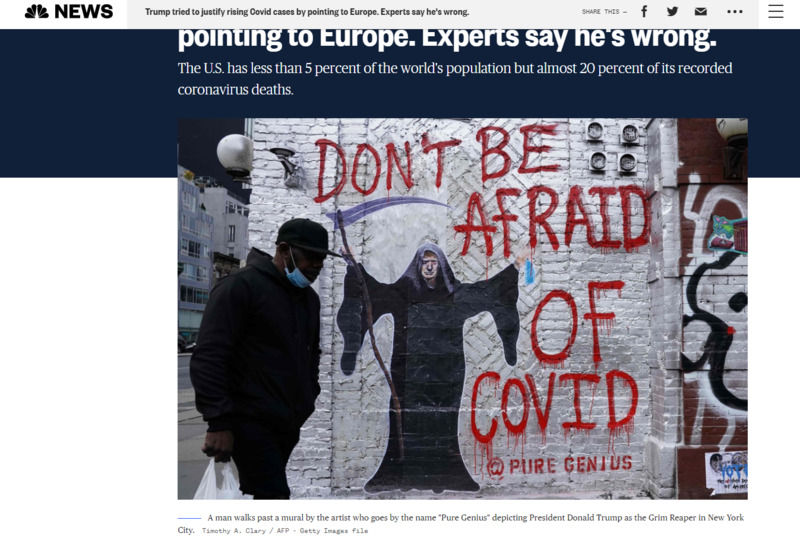
2020-11-09
This article uses a photograph of Pure Genius' street art to illustrate points about former US President Trump spreading misinformation/disinformation about the COVID-19 virus. The artwork depicts Trump as the grim reaper with a message reading "Don't be afraid of COVID."
-
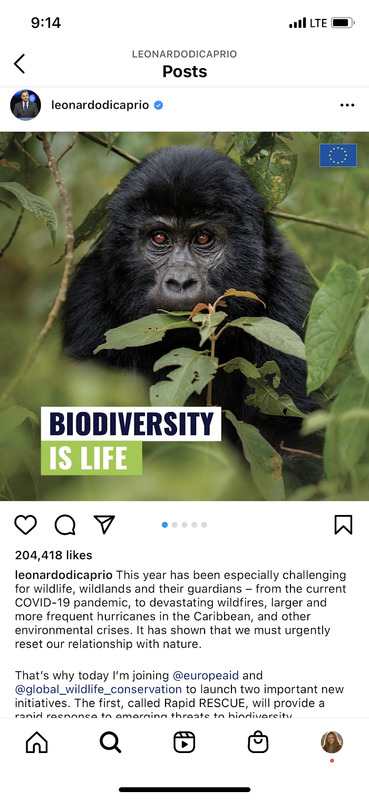
2020-12-01
This is an instagram post made by Leonardo Dicaprio. Leonardo Dicaprio is a very big activist for wildlife conservation and has donated millions of dollars over the years to help wildlife. This post specifically is talking about how the last year has had a hard impact on wildlife with COVID being one of the biggest factors. This post explains how he will be helping even more than he already has and how he will be helping and how others can help too. He explains in the post how important wildlife is to the planet as a whole and how we need to take action before it is too late.
-
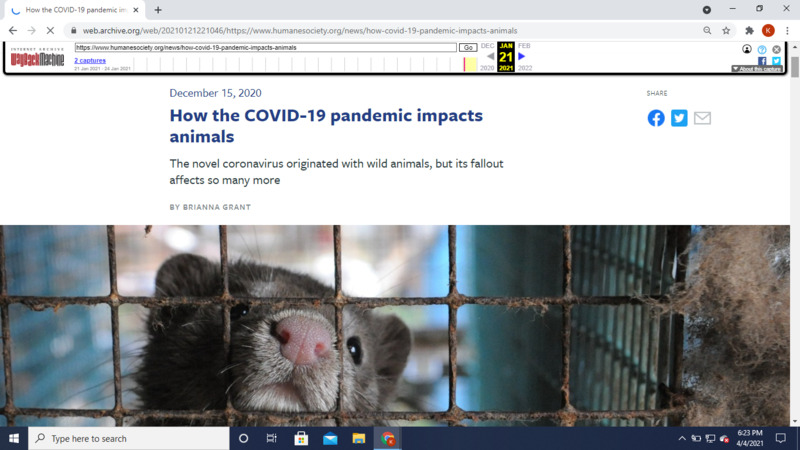
2020-12-15
This is an article about how the pandemic has affected wildlife in a negative way. This article explains how the cause of COVID was from wildlife and if we continue to trade wild animals like we do now many more of these viruses may break out. Another thing this article touches on that is important is how COVID is not just a human virus but an animal virus too. Large cats in zoos were catching COVID as well as animals that were used for their fur in multiple countries. This article explains how the vaccine was being tested on primates which affected their wildlife negatively especially because a lot of vaccines that work on primates do not work on humans. This article touches on other important things such as support animals, animals raised for food, and how to help the cause.
-
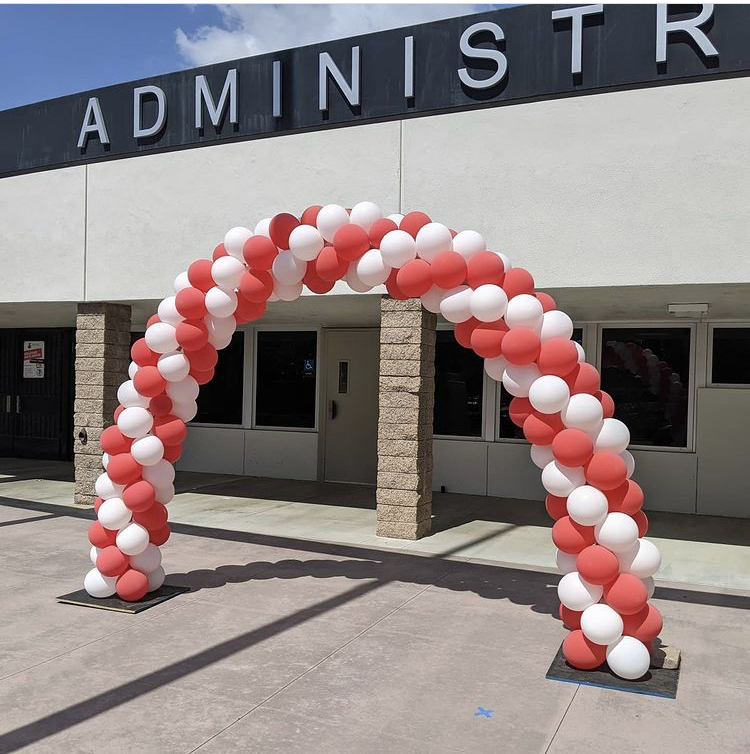
2021-03-23
Our school has never looked better - festive flags waving, campus clean and painted, welcoming balloon arches. We were ready to re-open. But then, no one came. The message we teachers had been whispering amongst ourselves for weeks, that kids and their families do not want to come back yet, had come to fruition. Out of my 172 students, only 31 will step foot on campus, the rest will continue to logon from home. That number, 31, is expected to continue to drop as more students revert to only Distance Learning. Knowing how few students were on campus, I was surprised to see our school social media posted first day pictures. I know it was supposed to be celebratory, but I couldn’t stop laughing at the insanity of a balloon arch welcoming no one. How could our social media exclaim that we were “so happy to see students roam the halls again” and then post pictures of a completely empty school? It looks like Chernobyl. At some point, I decided to take the images, a video of an empty classroom my friend took, and my attendance roster with almost all kids marked as “Distance Learning” and put them together in a video to try and capture the mixed emotions. I alternatively feel like crying and laughing when I watch it. I really think it captures the reopening, albeit in a slightly subversive way. Of course, I really hope my admin never sees it, because I’m guessing they will not see the tongue and cheek, ironic humor in this.
-
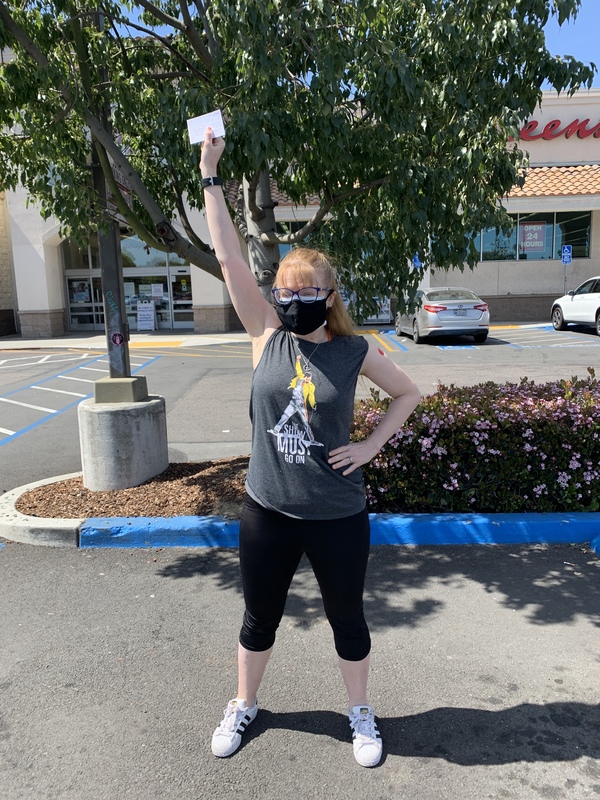
2021-03-24
Shot 2! After so many sleepless nights and moments of paralyzing fear, my husband, my 65 year old mom, and I are all officially double dosed! The day I have been praying for for months is here and I am in disbelief. But I’m also sitting here like “now what?” Are we really safe? Can I REALLY go safely and run in my canyon aside the maskless? I do trust the vaccine, but it is a huge psychological jump to suddenly trust. There’s also the issue of the two things I love most in this world - my kids. They’re not eligible for vaccines yet and I fear for them. I know, the likelihood of them having a serious complication is low, but as a person who had both the measles and scarlet fever as a kid (no, I’m not kidding), I am a walking example of the “one in a million” chance. What if they’re like me instead of their dad? I feel like I’m in a strange limbo. Definitely more hopeful than I was even a couple of months ago, but also sort of paralyzed in a sense of “what do we do now?”
-
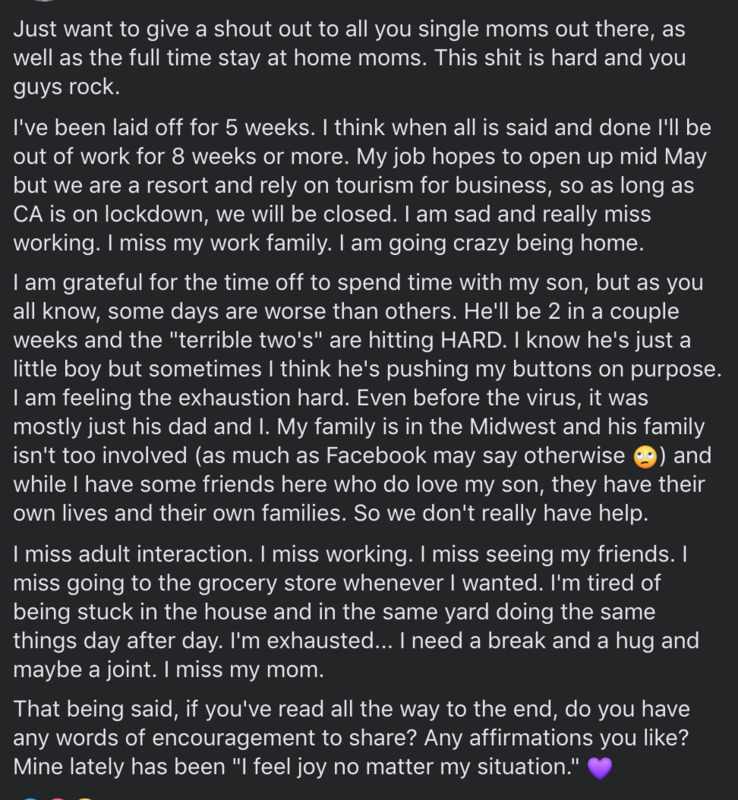
2021-03-28
I am researching the unintended consequences of the pandemic. One way to find some answers is to learn what real people are going through. It is easy to find people’s thoughts about the pandemic on social media, so I took to my mom groups and found people willing to let me share their thoughts anonymously. In the first screenshot, a mom talks about how she is trying to stay positive through the pandemic. From losing her job temporarily, to missing her work and family, to missing simple everyday things like shopping, this mom is feeling the brunt of lockdown in California. It is easy to pick out the negative consequences of the pandemic, but she looks for positivity anyway.
The next mom is worried about how her child is going to come out on top due to homeschooling. She wants advice on how to keep her son motivated and not give up when things get hard. There is no way to tell exactly how this pandemic has affected our kids, only time will tell. But there have definitely been some unintended consequences. This example shows that while we are parents and we love our children, we have no idea what the teachers were doing to help our kids through each class before the pandemic. Perhaps one consequence of the pandemic will be a larger respect for teachers.
I plan to further use social media for my research, along with academic studies, and oral interviews.
-
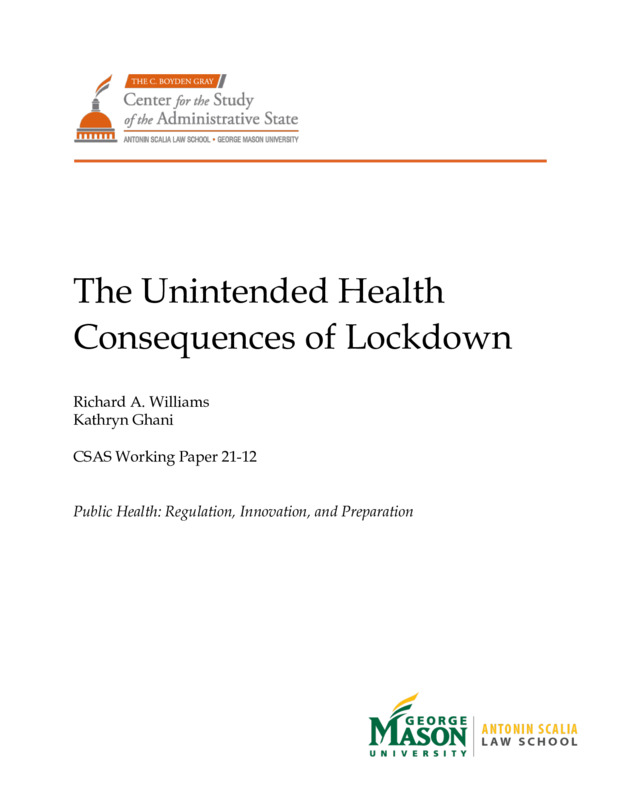
2021-03-28
I am researching the unintended consequences of the COVID-19 pandemic. This article is an in-dept look on the consequences of lockdown in the US. While the article covers positive consequences like less pollution and less contagious diseases like the flu, I am going to talk about some of the ones related to my research. The article says most “unintended consequences fall generally into five categories: lack of care, isolation, wealth/health loss, psychological harm, and harm to children.”
Lack of care includes people who do not feel comfortable going to the doctor or hospital for fear of catching COVID-19. The amount of people who went in for a severe heart attack has dropped by 40%. Isolation consequences include things like an increased rate of suicidal thoughts and an increase in drug overdoses. Wealth and health loss is due to loss of income, and as evidence shows, poverty is deadly. Psychological harm involves burnouts and stress related breakdowns, as well as mental health disorders and insomnia. The harm to children section includes many heartbreaking statistics about lack of school based mental health care, sexual abuse, drug use, and neglect.
The article talks about how the effects of all of this may not be known for many years, but it is clear there have been many negative consequences of lockdowns due to the pandemic.
-
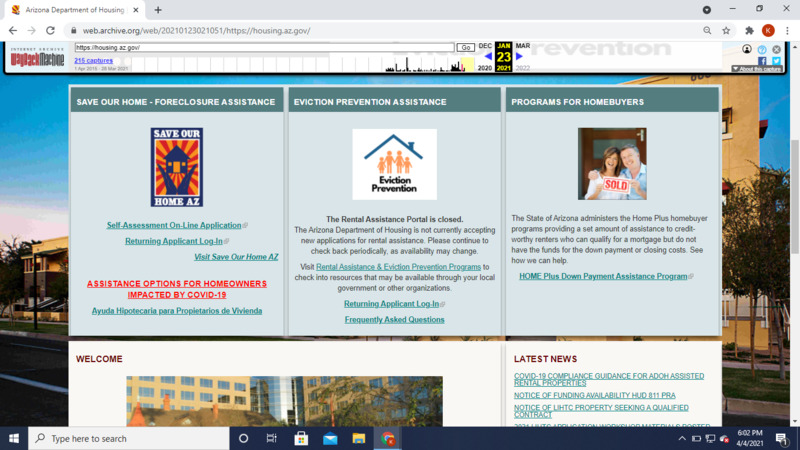
2021-03-28
The two main parts of this website are eviction protection and foreclosure protection. The eviction and foreclosure programs have become more robust as a result of the pandemic and the way that it has put more strain on people's housing situations. The site also has a specific section regarding assistance specific to the COVID-19 pandemic. COVID health focuses on mortgage assistance for homeowners. There seem to be some gaps on this site for renters who typically have closer proximity to housing instability and would need more assistance ensuring that they don't experience homelessness. I want to specifically examine the gaps that this site has and the specific type of assistance that it does offer.
-
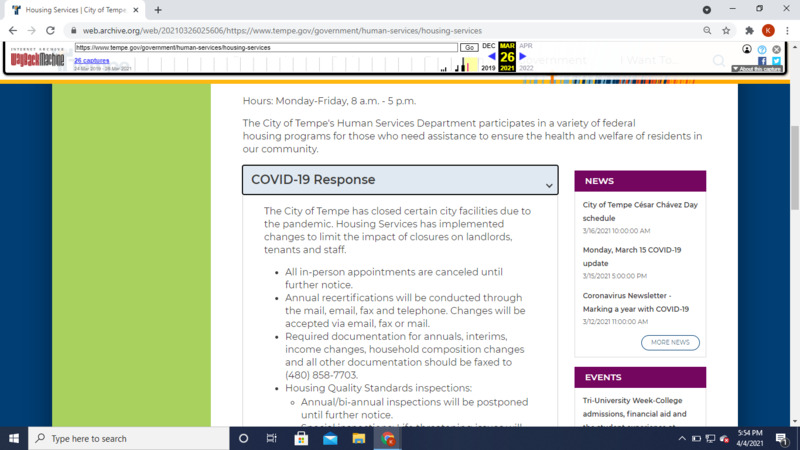
2021
I chose this article because it provides a list of housing resources for Tempe. The resources covered here are section 8 housing and other rental assistance programs. The city has its own stated homeless assistance program. In their section for COVID-19 assistance. Specifically, in the COVID-19 section, it states that there will no longer be in-person meetings due to safety reasons and that things will either be done over the phone or online. For my research, I want to focus on how these measures leave behind a lot of people who may not have access to a phone or internet and how that exacerbates the issues people experience with housing instability because they are unable to get resources. I want to really focus on processes with this resource.
-
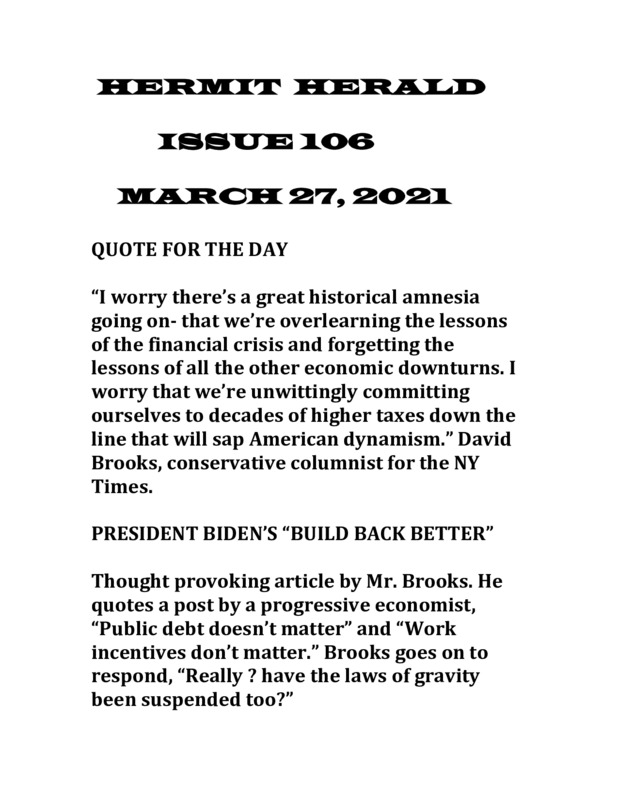
2021-03-27
Biden $3 trillion Build Back Better plan
-
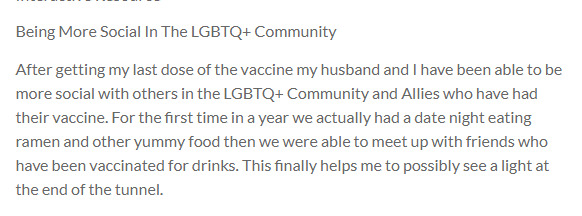
2021-03-29
After getting my last dose of the vaccine my husband and I have been able to be more social with others in the LGBTQ+ Community and Allies who have had their vaccine. For the first time in a year we actually had a date night eating ramen and other yummy food then we were able to meet up with friends who have been vaccinated for drinks. This finally helps me to possibly see a light at the end of the tunnel.
-
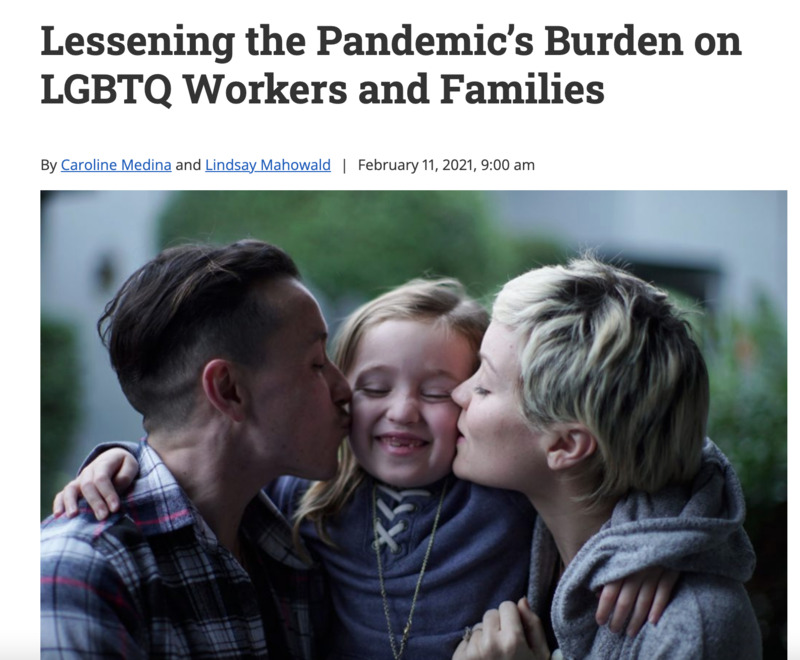
2021-03-29
This article is very interesting as it mentions that LGBTQ+ people are more likely to be at higher risk to have worse COVID-19 than heterosexual counterparts. The COVID-19 Pandemic has shown the cracks that are in the LGBTQ+ community as a whole. These impacts include participating in the workforce less, less economically secure, and homelessness. Eventhough, this group has been discriminated against and continue to be in soma cases they are not alone feeling the brunt of this COVID-19 Pandemic. Other groups include communities of color, low-income households, and people with disabilities. This pandemic has caused people to start to notice these disparities and as someone who is apart of the LGBTQ+ community, there is a higher chance of not receiving a job based on just this fact. I have seen this in action in my own life before and it is not always blatant and more work needs to be done on this front.
-

2021-03-28
I know the LGBTQ+ Community has a higher chance to have depression, anxiety, and other health ailments like many other minority communities. This Friday I got my second dose of the vaccine. I have been encouraging others in my LGBTQ+ Community to get the vaccine so this is one less health ailment they have to worry about.
-
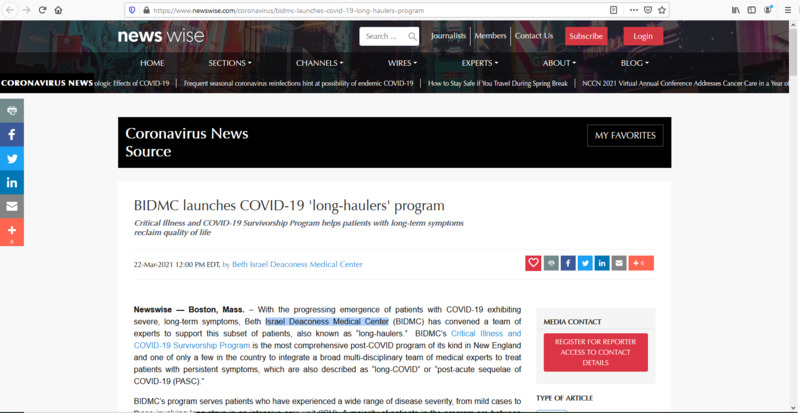
2021-03-22
This article is about the new team at Beth Israel Deaconess Medical Center in Boston whose purpose will be to study and support Covid-19 patients with long-term symptoms. These "long-haulers" have an array of physical and mental problems after their recovery from Covid-19. Unfortunately, since research on this virus and it's effects are quite new, experts are still finding out more everyday. This team at BIDMC is one of a few multi-disciplinary teams in the country that is specifically established to provide comprehensive care to these "long-haulers." With so many people contracting Covid-19, teams like this will be critical in how we move forward. As a matter of public health, we need to better understand if there are physiological changes to things like our lung and airway structures, brains, and other organs from having Covid, and if they are permanently damaged or not. This team will not only help these patients, but also help discover important answers for the public as a whole.
-
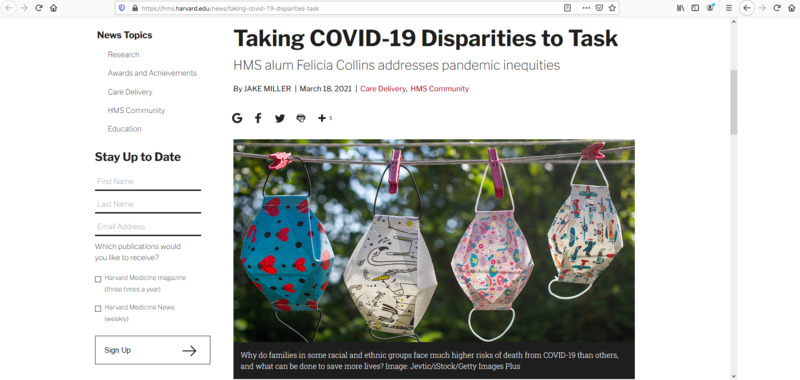
2021-03-18
This article is about the disparities in populations that have been impacted by Covid-19. The CDC found that American Indian, Alaska Native, African American, and Latino people were almost three times higher than non-Hispanic white people in hospitalizations during the pandemic so far. These numbers are, unfortunately, more a reflection on our healthcare system as a whole, not just specific to Covid.
Dr. Felicia Collins, a distinguished graduate of Harvard Medical School, is the keynote speaker at the 2021 Alvin F. Poussaint, MD Visiting Lecture and will be discussing these healthcare inequalities. On top of having an MD, Dr. Collins also has a Master's in Public Health (also from Harvard), which gives her a unique perspective into healthcare at the individual and population levels. Analyzing healthcare data through the lens of a physician must give her the ability to contextualize healthcare disparities in a way that others would not. This sounds like it will be an interesting lecture on a very important topic, and will of course be held over zoom.
-
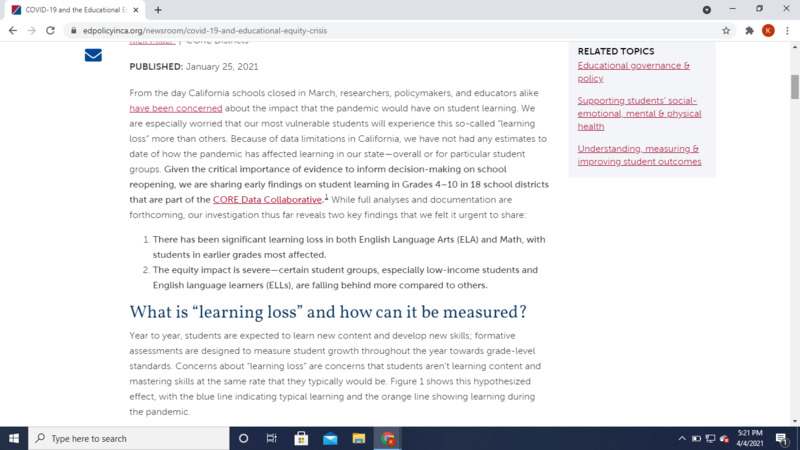
2021-01-25
This emphasizes how the pandemic has created a "learning loss", particularly among students in grades 4-10. It helps explain what the most challenging obstacles to this dilemma are as California continues to undergo food and housing insecurity. Low-income families are getting the brunt of the learning loss, and this shows just how damaging it can be to childhood and adolescent education as they "may never catch up."
-
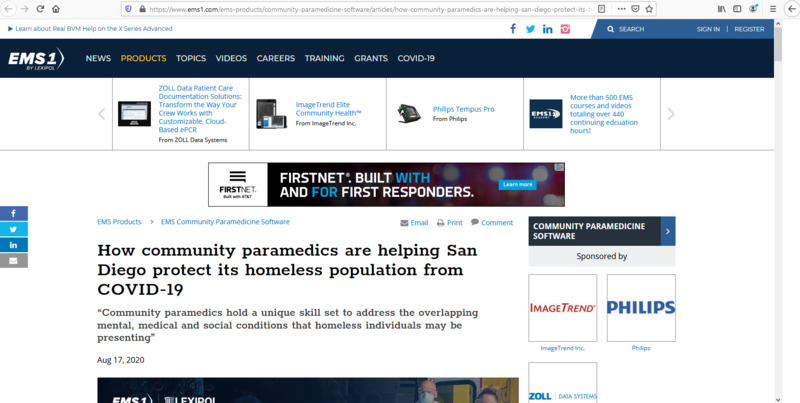
2020-08-17
This article discusses the use of community paramedics in the Covid-19 prevention efforts for San Diego's homeless population. Community paramedics are specifically trained paramedics that shift their focus from the treatment/transport to the hospital model, to a home-care model where the patient receives treatment and stays at home. In this case, they are being used to staff clinics at homeless shelters to provide care and Covid testing to their homeless population. The article references a 2017 hepatitis A outbreak in their homeless population and how that event has influenced the efforts during Covid to prevent a major homeless population Covid-19 outbreak. The article also explains the complexities of running these clinics but that it is worthwhile to aid a community that is among the most vulnerable to Covid.
-
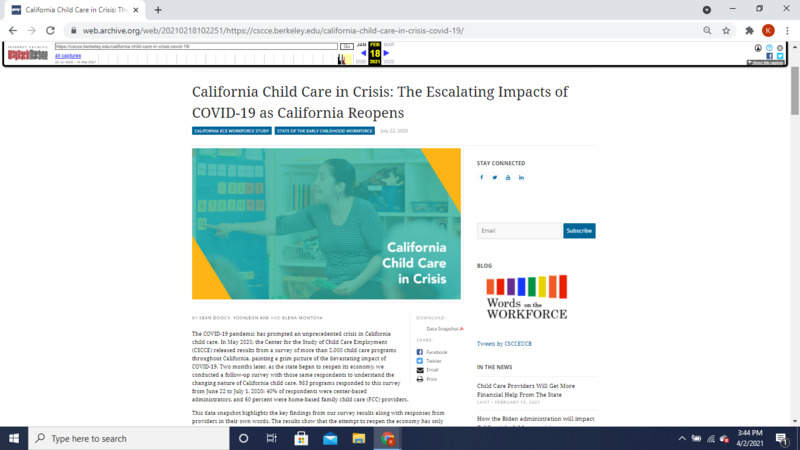
2020-07-22
This highlights how much the pandemic has affected child care workers and programs in California as health concerns continue to rise. It's yet another industry that was impacted greatly as many were out of a job and struggling financially. Not only does it emphasize the economic impacts on an industry, along with the needs for more health safety measures and the need to increase budgets for that, it’s effectively keeping those who need the child care services away.
-
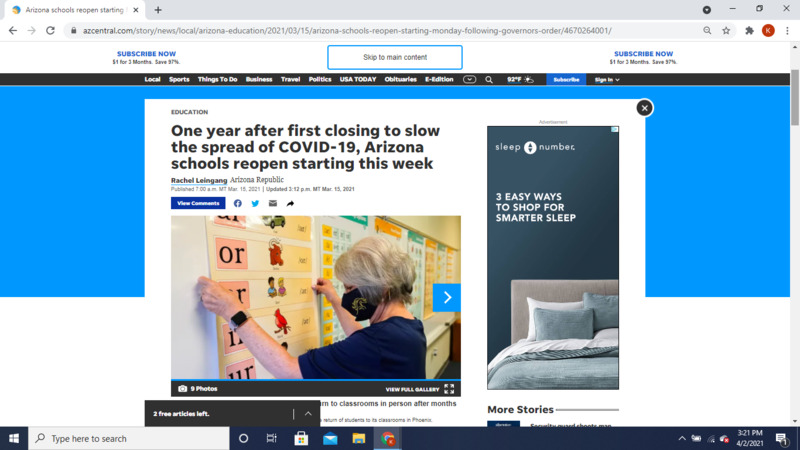
2021-03-15
Per Governor Doug Ducey's executive order which mandates all schools to reopen for in-person instruction by March 15th or "after spring break." As the article makes clear, most will be in person by the 15th, yet many schools still remain in the "high exposure" and therefore cannot open safely. The Arizona Department of Education is still in discussion with school leaders and health officials to implement the practices to ensure a successful reopening.
-
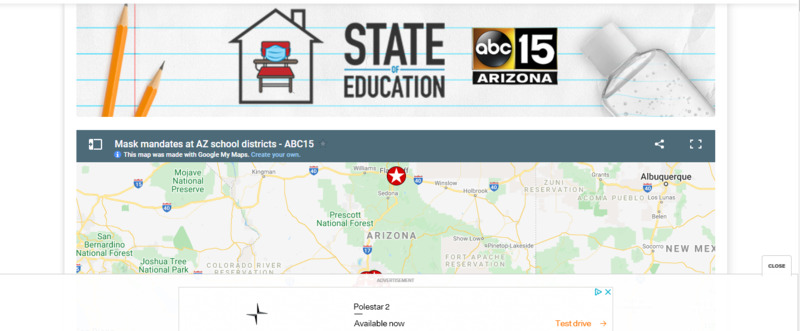
2021-03-14
A comprehensive list of Arizona districts or charters and their respective reopening plans. Districts/charters are further subdivided into schools. Additionally, the COVID-19 district dashboard assists the public with updates concerning exposures and outbreaks which is located on the COVID-19 district dashboard.
-
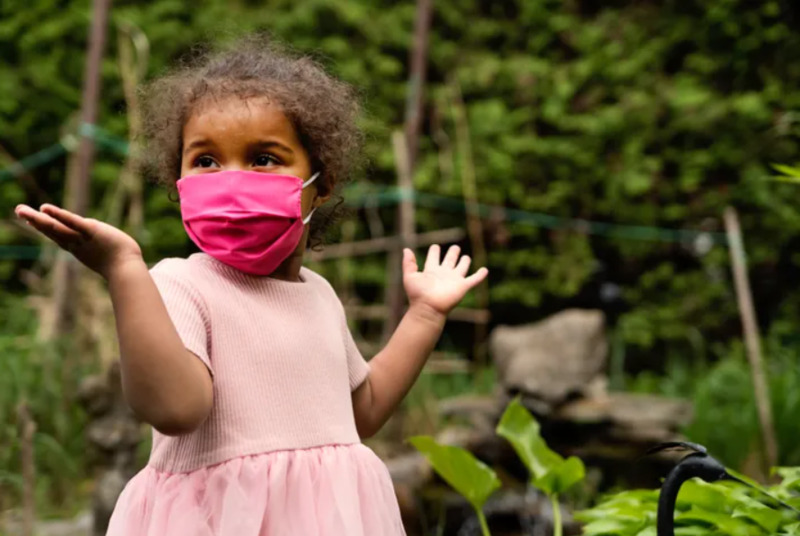
2021-02-03
This link discusses if experts are really worried about if the development of toddlers is important or are there bigger issues. A fact stated in this text says " that 60% of teenagers say they’re lonely to deeply troubling federal data that revealed a 24% jump in mental health-related emergency room visits among 5- to 11-year-olds." This is a very concerning matter as children as young as 5-11 should be living a healthy life mentally and physically as those are the prime time of their growth and development. It goes on to talk about how these prime timed years of a child's life affect how he is as an adult. Certain aspects that small roles in a child's life may unknowingly affect it as it grows.
-
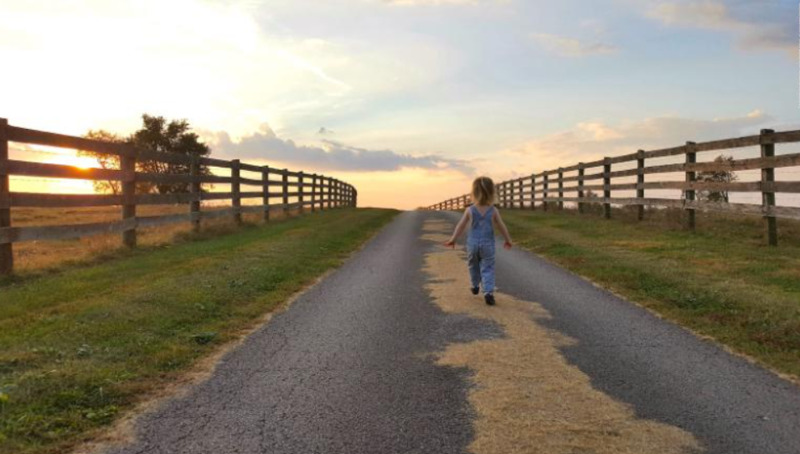
2021-01-11
This link provided discusses the lack of social development that is being portrayed in toddlers as most of them have fewer interactions with people other than their intermediate family and friends. Much of the time when they do see others, they are in masks which makes it difficult for them to understand emotion and detect feelings. The mother in the article discusses that she does not know if it's her introverted genes that have been passed on to the child or if it's just the lack of social development the toddler has.
-
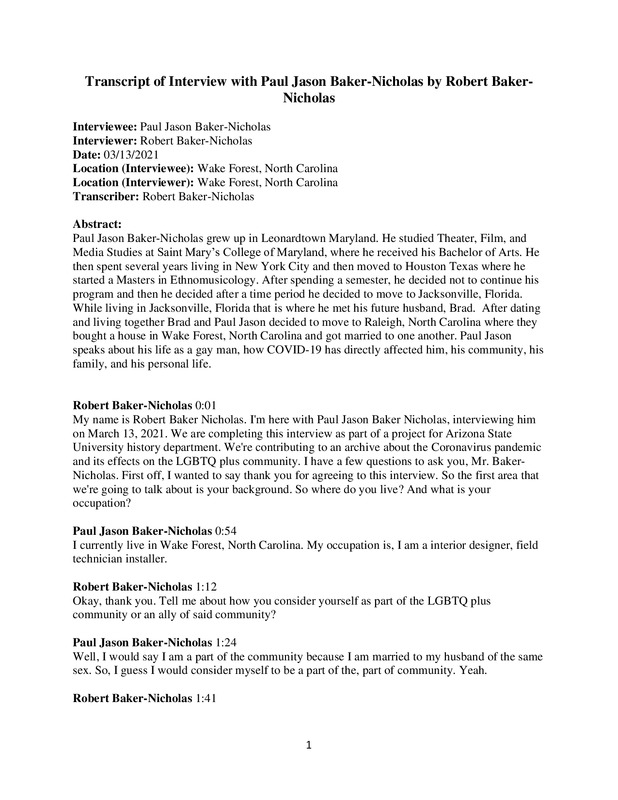
03/13/2021
Paul Jason Baker-Nicholas gives an oral history interview about how COVID-19 has affected the LGBTQ+ Community.
-
2021-03-26
I dream of a world with no restraint.
A world where everyone may be free.
A world freed from the burden of masks and complaints.
A world where we all agree.
I wish for a world with no injustice.
A world where everyone is equal.
A world freed from the burden of hatred and those who despise justice.
A world where there are none who are unequal.
I hope for a world with the healthy at ease.
A world where we aren’t isolated or destitute of friends.
A world freed from the uncouth disease.
A world where we don’t constantly need to cleanse.
COVID-19 has been a mess,
but we will stay hopeful nonetheless.
-
2021-03-26
I hope one day,
When someone asks me how I’m doing,
I’ll say that I’m good,
And truly mean it.
I hope one day,
That I have no feeling of missing,
And have all the people,
Together with no concern.
I hope one day,
I can breathe in the world,
And not have to worry about masking myself.
I hope one day,
I’ll go to the hospital,
And see the doctors laughing.
I hope one day,
I’ll truly forgive.
Forgive myself,
And forgive others,
Of always wanting,
Wanting something more.
Shall we not hope on that day,
To work at home,
For being tired
Of running to school?
Shall we not hope,
To run away,
Or mask ourselves
In disguise?
Shall we not hope,
That we did something more,
While in,
This everlasting void of unhappiness?
Shall we not hope,
That we had been better,
That we had resisted,
And pushed on?
So,
I hope on that day,
We will not regret,
We will forgive,
We will understand.
We will hope.
-
2021-03-26
Dear post-covid world,
I dream for people to take science more seriously.
I dream for school to realize the pain it gives some people.
I dream that the “rulers” of the school have learned that they aren’t better than others.
I dream that the teaching of racism dies.
I dream that women get equal pay.
I dream that people can learn to love mother nature.
I dream that people will smile more.
I dream that adults would stop acting like babies.
I dream that we can trust one another again.
I dream that I can go back to the childhood I used to know.
The childhood that didn’t care about a thing in the world.
The childhood that didn’t have to see and learn the cruelty of the real world.
I dream that at least one person reads my letter.
I dream that all of this will come true.
I know it won’t.
But a kid can only dream.
Sincerely,
One voice
-
2021-03-26
I want...
To be able to see my friends and without masks.
To be able to see my cousin who's one of my best friends.
To be able to go to school
To be able to play volleyball inside
To be able to have fun without worried about my health
To be able to see my grandparents and my newborn cousin I haven't been able to meet
To be able to have fun and live my life as a kid, the world every kid deserves
-
2021-03-26
When Covid is over I want to do this:
Disneyland
Do things with no masks like going to the beach and parks
Universal
Travel to the Maldives
See my friends
Eat inside of places like Daikokuya on Sawtelle
 2021-03-17
2021-03-17 2021-03-21
2021-03-21 2021-03-25
2021-03-25 2021-03-28
2021-03-28 2021-03-28
2021-03-28 2021-03-26
2021-03-26 2021-03-26
2021-03-26 2021-03-27
2021-03-27 2021-02-11
2021-02-11 2021-03-13
2021-03-13 2021-03-16
2021-03-16 2021-03-17
2021-03-17 2021-03-26
2021-03-26 2020-04-30
2020-04-30 2020-06-16
2020-06-16 2020-06-01
2020-06-01 2020-09-22
2020-09-22 2021-02-14
2021-02-14 2020-12-05
2020-12-05 2020-05-28
2020-05-28 2021-03-27
2021-03-27 2021-03-22
2021-03-22 2020-11-09
2020-11-09 2020-12-01
2020-12-01 2020-12-15
2020-12-15 2021-03-23
2021-03-23 2021-03-24
2021-03-24 2021-03-28
2021-03-28 2021-03-28
2021-03-28 2021-03-28
2021-03-28 2021
2021 2021-03-27
2021-03-27 2021-03-29
2021-03-29 2021-03-29
2021-03-29 2021-03-28
2021-03-28 2021-03-22
2021-03-22 2021-03-18
2021-03-18 2021-01-25
2021-01-25 2020-08-17
2020-08-17 2020-07-22
2020-07-22 2021-03-15
2021-03-15 2021-03-14
2021-03-14 2021-02-03
2021-02-03 2021-01-11
2021-01-11 03/13/2021
03/13/2021